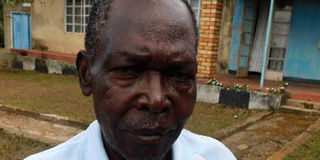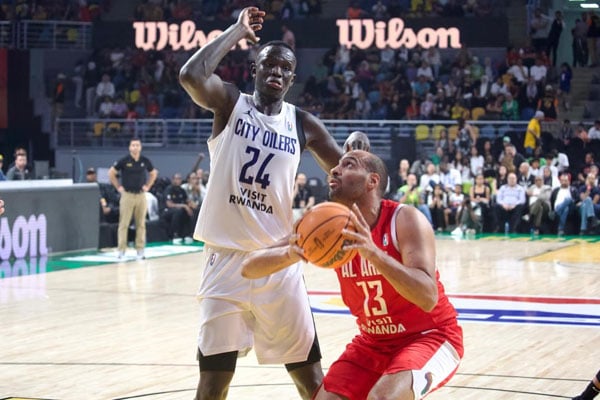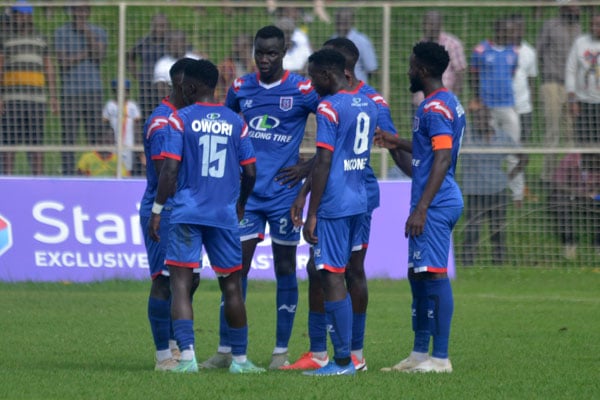Prime
Ssebunnya: Man who showed St Balikuddembe SS the way

Mr Charles Ssebunnya, former headmaster of St Balikuddembe Secondary School, Mitala Maria in Mpigi District. Photo | Michael J Ssali
What you need to know:
- These were sang by students and played on several radio stations, in the 90s. It was a popular school, well known not only for its music and drama, but also for its good performance in sports and academics.
Most people who knew about St Balikuddembe Secondary School, Mitala-Maria in Mpigi District, always associated it with beautiful songs.
These were sang by students and played on several radio stations, in the 90s. It was a popular school, well known not only for its music and drama, but also for its good performance in sports and academics.
Its history is best told by Mr Charles Ssebunnya, who took over its leadership as head teacher in 1983 before it became government-aided.
“As a school, it was almost deserted when I was transferred there to be its head teacher,” says Ssebunnya while at his house at Ssenya Village on the outskirts of Masaka City.
“The student population had decreased to only 17 students; with 10 in boarding and seven being day scholars. It took a lot of struggle and a bit of innovation for us to turn it into the big boarding and day school of over 1,400 students,” he recalls.
Mr Ssebunnya, who holds a Bachelor’s Degree in English and History and a Diploma in Education from Makerere University, was initially the head teacher of Stella Maris Girls Secondary School, Nsuube, Buikwe District, where he had been posted after his graduation from Makerere University in 1974.
“The Catholic Church, which was the foundation body of both schools; Nsuube and Mitala Maria, had developed some confidence in me despite my young age, and I related quite well with the Church, given my Catholic background,” explains the 73-year-old educationist.
The school did not receive any government grants. “However, the following year, 1984, it became government-aided. But we still faced many challenges including low [enrollment] of students,” he says.
One of his first strategies to attract students was to improve the school diet and to set up a good school choir.
“I had acquired some music skills when I was at Bukalasa Seminary where I had been tutored by Rev Father Henry Ssettumba who was a perfectionist. I undertook to train my students who began singing in Mitala Maria Parish choir on Sundays. This greatly contributed to getting us more students,” he recalls.
St Balikuddembe Secondary School later became well-known across the country because of its music performance. Its songs were played on CBS FM Radio station and a few others and to Ssebunnya’s surprise even State House got to know about the school and on a number of occasions, the choir was asked to entertain guests during national functions.
He, however, adds that much as the government had offered to facilitate their transport and meals at national functions, many times the facilitation never reached the school.

St Balikuddembe Secondary School, Mitala Maria in Mpigi District. Photo | Joseph Kiggundu
“By 1994, our school had excelled not only in music, but also in sports, competing with schools such as St Henry’s College Kitovu, Kibuli Secondary School and Kololo Secondary School. We would put up marvellous shows in Mbarara Coca Cola Football Cup. Our student population had by then hit over 1,400.
To improve their food security. Mr Ssebunnya says: “When a school has very few students it often does not have the money to buy all the components of a balanced diet. However, the school had some land on which we could grow our own food crops. But we were still too few for productive work. To boost their interest in physical work I decided to participate personally in all the farming activities.”
So he worked with his students ---tilling the soil and planting maize, beans, potatoes, cassava, cabbages and tomatoes. The students grew their own crops and the surplus was sold to supplement the school budget.
“Around that time, I struck friendship with the late Paul Muwanga, who was the then Vice President. This was his home area and he took strong interest in helping the school. If we needed a tractor to clear some land, he provided one. Within a short time the school became almost self-reliant with regards to food,” he recalls.
Challenges
Mr Ssebunnya says it was not all rosy as the school had to survive through various challenges such as the war that overthrew the Uganda Peoples Congress (UPC) government.
He, further, adds that around 2004, benefactors such as Muwanga gradually withdrew their support.
Mr Ssebunnya says government grants took too long to come and students’ feeding, electricity, water, and other utility bills became difficult to settle.
“Sometimes, we had to issue postdated cheques to keep our suppliers waiting which only made our position worse,” he says.
Mr Ssebunnya retired rather prematurely, but he says he is quite happy that he was able to make what he refers to as “that small contribution towards Uganda’s development.”
Ssebunnya was born at Kyato Village in Kalungu Sub-county in Kalungu District. His father, the late James Kibirige, was also a teacher and nearly all Ssebunnya’s brothers and sisters became teachers.
After his primary school at Kyato Primary School, Mr Ssebunnya had joined Bukalasa Seminary in Kalungu District with hope to become a priest. He, however, dropped the idea and joined St Henry’s College, Kitovu, for his A-Level before going to Makerere University.
What they say
Charles Bwanika Ssensuuwa, a radio personality.
Mr Ssebunnya nurtured many talents in both the performing arts and sports fraternities. Most of the great drama actors, radio presenters and some sports personalities went through his hands. He loved teaching and nurturing talent. He knew how to handle students and used to tell teachers that parents entrust them with their children to make them better citizens.
He never believed in failure, to him every student had potential to become somebody in society and indeed lived to that.
Ms Annie Najjuka Bukenya, the head teacher, says the school is still vibrant even with high competition.
“It is not true that St Balikuddembe SS collapsed. We still exist as a school and prioritise things we are known for, it is just because we don’t advertise, also there are many schools that do the same things that made us known,” she says. She says the school still performs well both in academics and sports.
“In Mpigi District, we’re ranked 2nd among the best academic performing government schools. In 2019, before I joined the school, our Senior Four candidates then got 11 first grades, but in 2020 the first grades increased to 27 which shows that we’re now on steady progress and each year we multiply our first grades,” Ms Najjuka avers.




